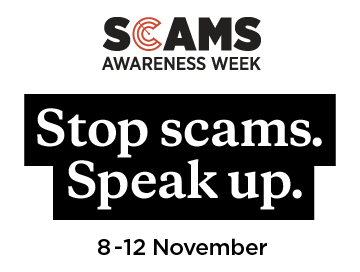42 results, showing 1 to 10
The National Anti-Scam Centre’s latest Targeting Scams Report found scam losses reported to key organisations fell by 25.9 per cent to $2 billion in 2024, showing the efforts by government, industry, law enforcement and community organisations are reducing the financial impact of scams on Australians.

Criminals are calling people and pretending to be from a trusted organisation like a bank, IT company or phone company.
Scammers pretending to be real businesses are sending fake invoices to customers, with scam bank account details. These may seem to come from a business you expect an invoice from - but scammers have stolen their identity to steal your money.

Scammers are creating lifelike impersonations (or 'deepfakes') of celebrities and public figures, who appear to be promoting 'quantum' or 'AI' online trading platforms.
The National-Anti Scam Centre is warning HSBC customers to watch out for scam texts that appear to be from their bank.

Australian businesses lost $227 million to payment redirection scams in 2021, a 77 per cent increase compared to 2020, the ACCC’s latest Targeting Scams report reveals.

Scammers stole over $66 million last year from Indigenous Australians, people who identified as culturally and linguistically diverse (CALD), and people with disability

Australians lost a record amount to scams in 2021, despite government, law enforcement, and the private sector disrupting more scam activity than ever before.

Scams Awareness Week 2021 takes place 8-12 November. This Scams Awareness Week we’re encouraging everyone to start a conversation about scams.

Since August 2021, many Australians have been getting scam text messages about tracking a delivery, missed calls or voicemails, along with a link to download some software. If you receive one of these messages, do not click or tap on the link.



